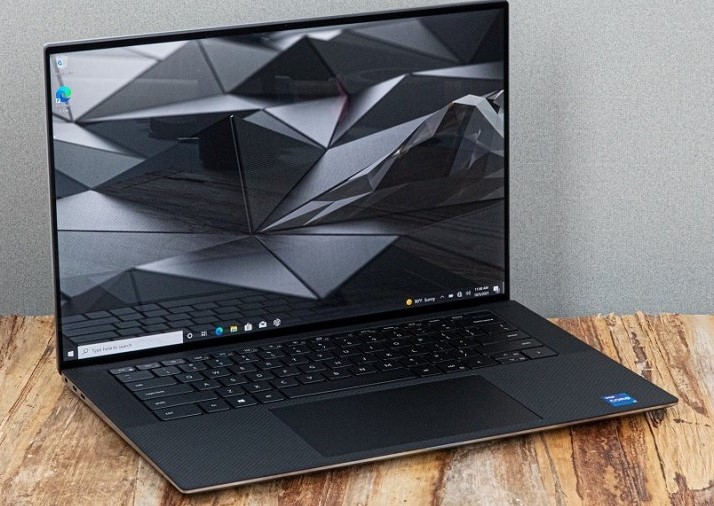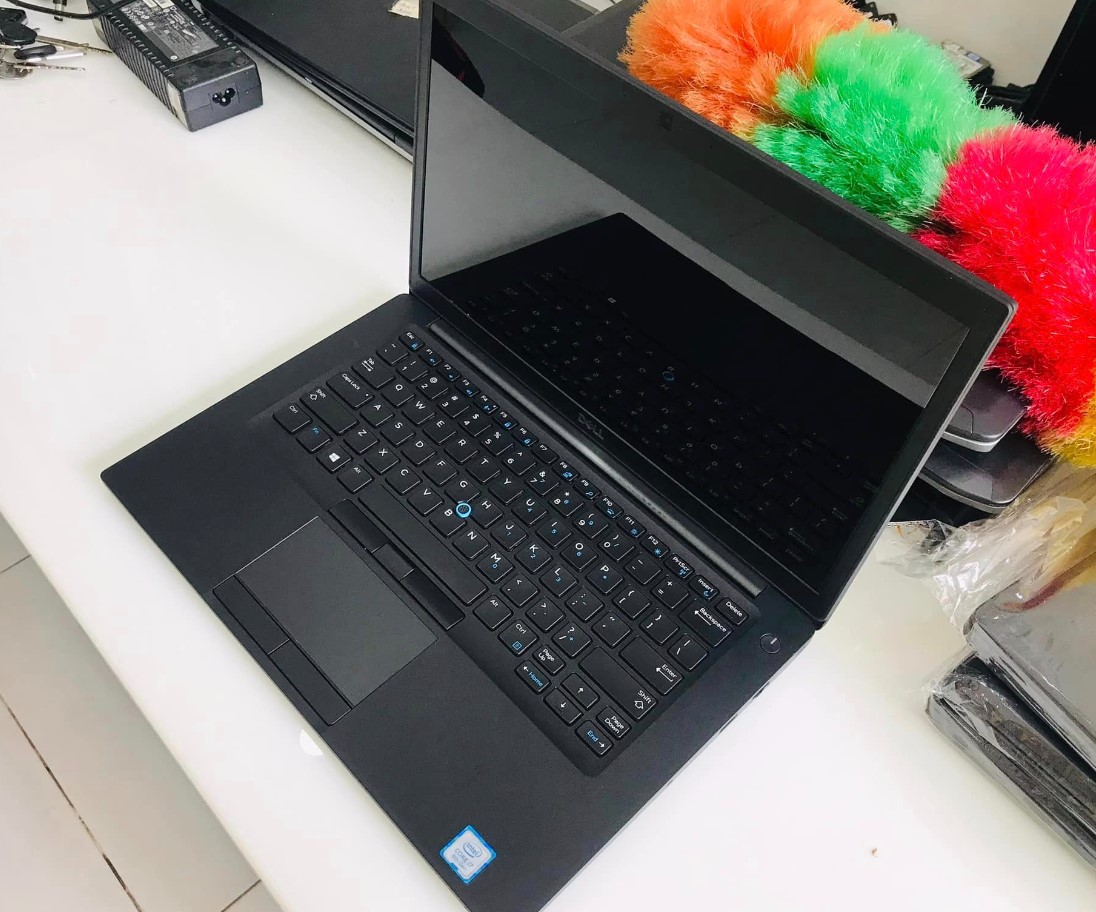When discussing Dell laptops, two frequently compared models are the Precision and Latitude series. The fundamental contrast between them lies in the fact that the Precision range was meticulously crafted to cater to the needs of professionals, whereas the Latitude lineup was explicitly designed with the requirements of business users in consideration. Since its inception in 1997, the Precision laptop has been a staple, offering an unparalleled choice for power users, designers, and artists. It features a quad-core i5 processor, a 15.6-inch display, and the capability to accommodate up to 32 GB of RAM.
In contrast, Dell’s Latitude series has undergone several iterations over time, comprising three distinctive versions. Highly customizable and optimized for corporate usage, these devices boast remarkable battery longevity and a refined aesthetic. While the Precision model commands a higher price tag and is equipped with superior specifications, the Latitude series caters to budget-conscious consumers by delivering commendable performance and efficiency at more economical prices.
Don’t miss our in-depth comparison of Dell Precision Vs Latitude laptops! From performance to price points, find out which brand reigns supreme in the tech world.
Comparison Table – Dell Precision Vs Latitude
Dell Latitude vs. Precision: What’s the Difference?
Numerous individuals might require assistance when choosing between the Dell Latitude and Precision series laptops. While both laptops provide impressive features, they diverge in aspects such as performance, design, and cost.
The Dell Latitude suits the needs of business executives who are frequently on the move. Its lightweight construction, portability, and extended battery life render it perfect for remote work. Conversely, Dell Precision targets professionals who necessitate laptops capable of tackling resource-intensive activities such as video editing, 3D modeling, and other demanding software. Presented below are the fundamental contrasts between these devices, aiding you in making an informed decision based on your personal preferences.
Processor CPU
The processor stands out as a pivotal component within any laptop, responsible for executing instructions and performing computations that are fundamental to the machine’s functionality. In terms of processors, Dell Precision and Latitude laptops exhibit differences.
Dell Precision laptops boast robust Intel Core i7-4810MQ processors. This quad-core, eight-thread CPU touts an impressive clock speed of up to 3.8GHz, facilitating the swift handling of intricate tasks. Such a potent setup renders the Dell Precision particularly well-suited for professionals engaging with extensive datasets or graphics-intensive applications.
In contrast, Dell Latitude laptops are furnished with Intel Core i7-5600U processors, which are comparatively less potent than the Precision’s CPU. This processor features a dual-core configuration with four threads and a maximum clock speed of 3.2GHz. While it suffices for day-to-day usage, it might struggle when managing resource-intensive software. Consequently, if your laptop demands significant processing power, Dell Precision laptops present the optimal choice. Conversely, if your needs encompass light usage, Dell Latitude laptops are perfectly adequate.
Winner: Dell Precision

Memory (RAM)
When making a laptop choice, the quantity of available memory (RAM) also holds significance. RAM functions as a temporary storage unit for data and instructions, contributing to an overall performance enhancement.
Dell Precision laptops outshine Dell Latitude models in terms of memory options, presenting a choice of either 16 GB or 32 GB of RAM. This attributes to their suitability for seamlessly running resource-demanding applications that require substantial memory, such as video editing software or virtual machines.
In comparison, Dell Latitude laptops commonly offer memory capacities of 8 GB or 16 GB. For professionals engaged in tasks involving extensive datasets or graphics-intensive applications, an upgrade in memory might be necessary. Conversely, if your laptop needs revolve around general-purpose activities, Dell Latitude models equipped with 8 GB of RAM should suffice.
Winner: Draw
Storage
The storage capacity of a laptop holds significant importance when considering a purchase, as it determines the amount of space available for storing files, documents, and programs.
Dell Precision and Latitude laptops diverge in terms of their storage capabilities. Dell Precision laptops provide a storage capacity of 250 GB SSD, which falls short compared to the storage capacity offered by Dell Latitude laptops. In contrast, Latitude models feature 500 GB SSD drives, furnishing a more generous space for file storage, document management, and program installations.
Additionally, Dell Latitude laptops showcase enhanced read and write speeds, leading to quicker data access and storage processes. Conversely, Dell Precision laptops offer a limited SSD capacity, which might not suffice for professionals dealing with substantial files such as video or audio recordings. This makes Dell Latitude laptops a preferable choice for those seeking greater storage versatility.
Winner: Dell Latitude
Design and Build Quality
A significant differentiation between Dell Precision and Latitude laptops pertains to their design and construction quality. The Dell Latitude laptop has been meticulously crafted for ruggedness, equipped to withstand drops, spills, and other mishaps. This renders it an optimal selection for individuals operating in demanding settings like construction sites or factories. Moreover, these laptops have successfully undergone military-grade certification tests, assuring their resilience against extreme temperatures and conditions.
In contrast, Dell Precision laptops present a sophisticated and polished aesthetic, yet they lack the robustness characteristic of Latitude models. These laptops are not engineered for rugged usage nor intended for harsh environments. Nevertheless, Precision laptops showcase a premium construction quality with aluminum chassis and a carbon fiber finish. Their lightweight nature and portability render them ideal companions for professionals who frequently embark on travels.
Winner: Dell Latitude

Graphics Performance
Dell Precision and Latitude laptops differentiate notably in terms of their graphics performance. Precision laptops stand out with their high-performance graphics cards, rendering them particularly suitable for endeavors demanding intensive graphic rendering, such as video editing, 3D modeling, or gaming.
Dell Precision laptops are equipped with dedicated graphics cards like Nvidia Quadro or AMD Radeon Pro, proficiently managing intricate graphic tasks. These laptops offer an array of display alternatives, encompassing 4K resolution screens and touchscreens to enhance user convenience.
Conversely, Dell Latitude laptops lack the presence of dedicated graphics cards and rely on integrated graphics processors for rudimentary graphic functions. Although these processors manage elementary visual effects, they necessitate optimization for more demanding graphic applications. While Latitude models also present diverse display choices, including touchscreens, their design isn’t tailored towards high-end graphics pursuits.
Winner: Dell Precision
Ports and Connectivity
The primary differentiation between Dell Precision and Latitude laptops lies in their port variety and connectivity possibilities. Dell Precision laptops are meticulously designed to cater to the requirements of professionals, featuring a diverse assortment of ports such as USB Type-C, Thunderbolt 3, HDMI ports, and Ethernet ports for wired networking, along with support for Wi-Fi 6 and wireless capabilities of Bluetooth 5.1. Moreover, these laptops are equipped with an array of ports, encompassing USB Type-C, Thunderbolt 3, HDMI, and even USB Type-C for charging purposes.
On the contrary, Dell Latitude laptops present a more constrained selection of ports and connectivity options. They encompass USB Type-C and HDMI ports, albeit lacking Thunderbolt 3 or Ethernet ports. Notably, these laptops do incorporate Wi-Fi 6 and Bluetooth 5.1 wireless capabilities. However, they might not be the ideal choice for professionals necessitating the concurrent connection of multiple devices. Additionally, certain newer Latitude models now come equipped with Thunderbolt 4 ports, providing enhanced data transfer speeds and supplementary connectivity alternatives.
Winner: Dell Precision
Dell Latitude vs. Precision: Which One Is Better? Which One Should You Use?
The primary factor to consider when choosing between Dell Latitude and Precision lies in your intended usage. If you’re a professional or business user in search of top-notch performance and efficiency, the Dell Precision should be your preferred option. Equipped with a superior processor, ample memory, and effective cooling mechanisms, this laptop proves optimal for power users like designers or artists.
Alternatively, if your priorities revolve around portability, versatility, and extended battery life, the Dell Latitude presents an excellent solution. This highly adaptable device is available in three variants, boasting impressive battery longevity and captivating screen displays. However, it does have certain drawbacks, including less memory and the absence of an SD card port.
Furthermore, despite the Dell Precision’s higher price point compared to its counterpart, the Dell Latitude, it provides a higher value proposition for professionals reliant on resource-intensive applications. Additionally, the inclusion of Windows 10 Pro (as opposed to the Home version bundled with the Dell Latitude) furnishes professionals with a more secure iteration of Windows 10.
To sum up, both Dell Latitude and Precision offer their own sets of merits and demerits. Ultimately, the choice hinges on the user’s specific requirements, dictating which laptop aligns better with their needs. Whether prioritizing performance or portability, each laptop caters effectively to its designated use cases.
Read Next:

Eyal Ephrat serves as the co-founder and CEO of medCPU.com, where technology is making significant strides in the field of medicine. Through his experience in purchasing PC and laptop equipment and various other tech products, Eyal Ephrat contributes valuable insights to medCPU’s mission.

